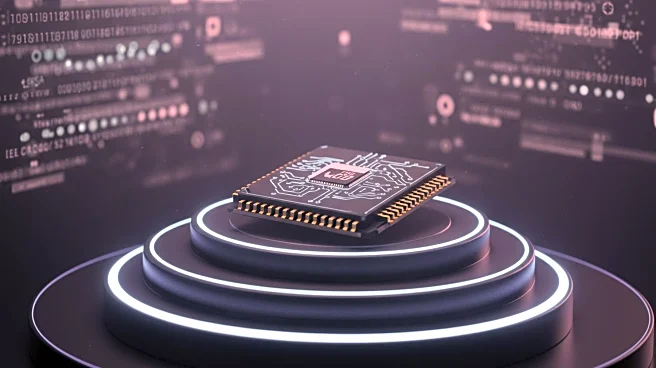What's Happening?
Noland Arbaugh, the first person to receive a brain chip implant from Elon Musk's Neuralink, has experienced significant life changes 18 months post-surgery. After a swimming accident in 2016 left him paralyzed below the shoulders, Arbaugh received the implant in 2024. The Neuralink device, which connects electrodes to his brain neurons, allows him to control digital devices using his thoughts. Arbaugh now uses the device extensively for activities like playing video games and controlling household appliances. He has also enrolled in college courses and is planning to start a business.
Why It's Important?
This development highlights the potential of brain-computer interfaces (BCIs) to transform the lives of individuals with severe disabilities, offering them new levels of independence and opportunities. The success of Neuralink's technology could pave the way for broader applications in medical and non-medical fields, potentially revolutionizing how humans interact with machines. It also raises ethical and regulatory questions about the use of such technology, including privacy concerns and the implications of human enhancement.
What's Next?
As Neuralink continues its trials, the company may seek regulatory approval for wider use of its technology. The success of Arbaugh's implant could attract more participants to future trials and increase interest from investors and partners. The broader acceptance and integration of BCIs into society will depend on addressing ethical concerns and ensuring the technology is safe and accessible.









